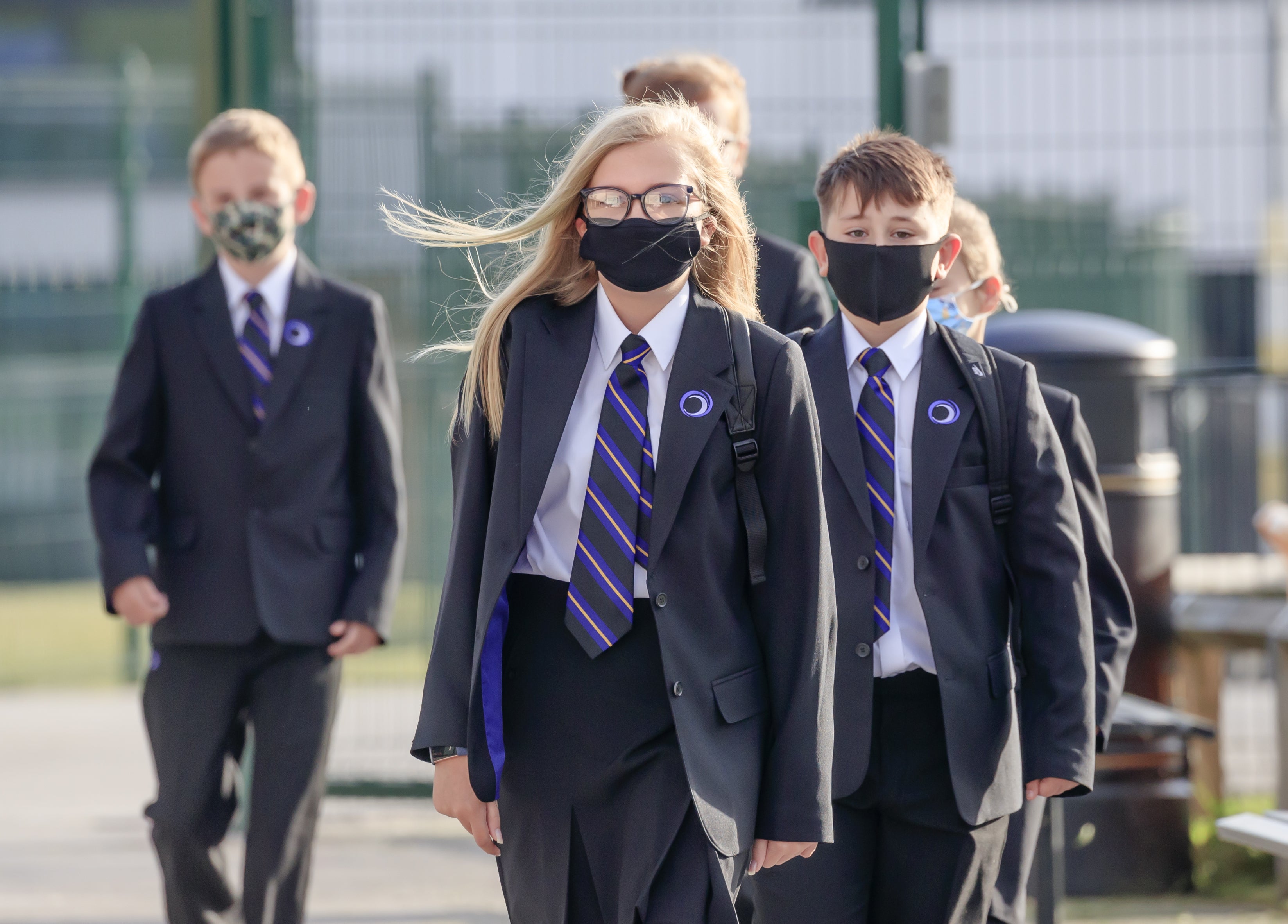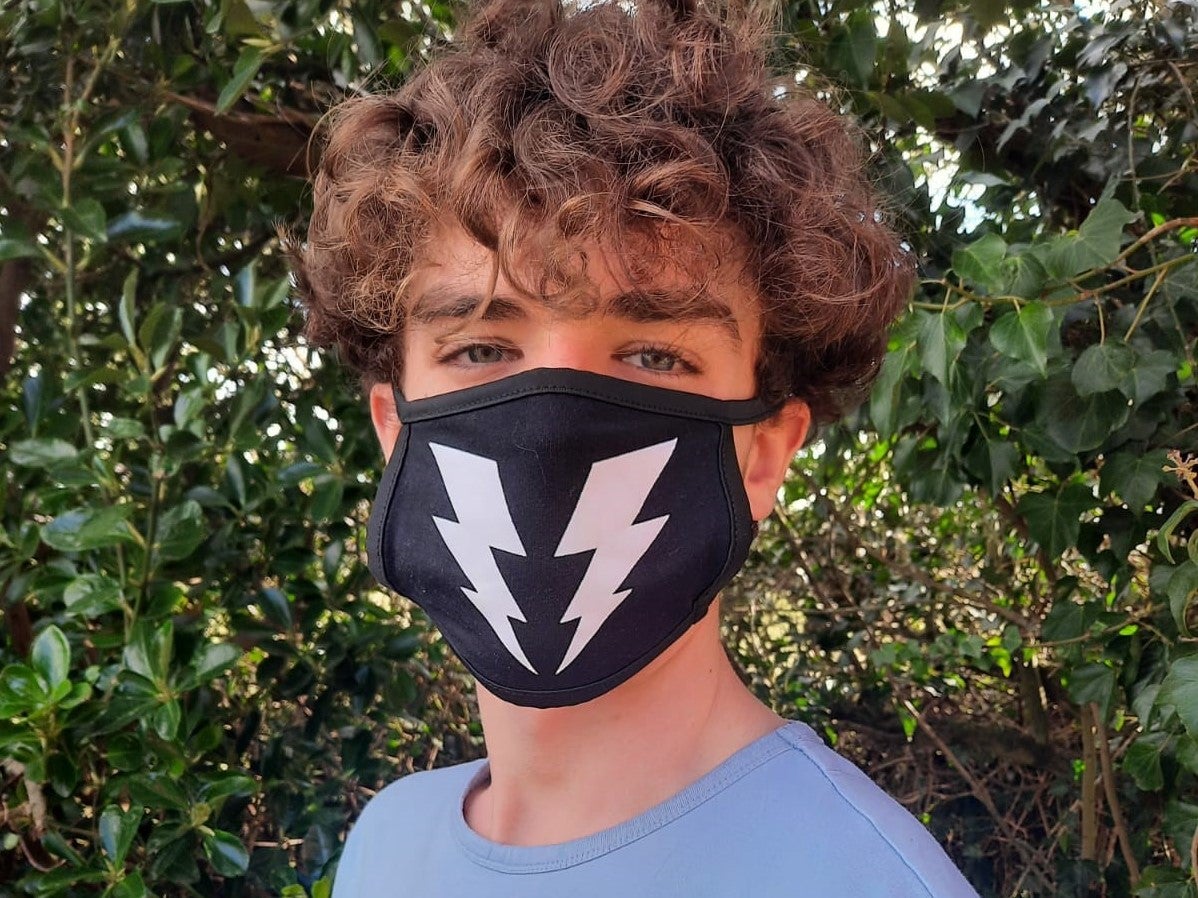‘Child abuse’: How masks in schools became latest cause of Covid rage
Colin Drury finds that ‘for some, refusing to wear a covering is an attempt to retain some control in a world that has changed’


Your support helps us to tell the story
From reproductive rights to climate change to Big Tech, The Independent is on the ground when the story is developing. Whether it's investigating the financials of Elon Musk's pro-Trump PAC or producing our latest documentary, 'The A Word', which shines a light on the American women fighting for reproductive rights, we know how important it is to parse out the facts from the messaging.
At such a critical moment in US history, we need reporters on the ground. Your donation allows us to keep sending journalists to speak to both sides of the story.
The Independent is trusted by Americans across the entire political spectrum. And unlike many other quality news outlets, we choose not to lock Americans out of our reporting and analysis with paywalls. We believe quality journalism should be available to everyone, paid for by those who can afford it.
Your support makes all the difference.To many people – including parents, students and teachers – it is a proportionate measure in an extraordinary time.
The government’s decision to recommend that secondary school pupils temporarily wear masks in classrooms appears to have been widely accepted as a reasonable way of reducing risk while getting society moving in the middle of a global pandemic.
Parents, teenagers and school workers have all expressed support for the guidance. Tory governments and teaching unions rarely reach consensus on anything, but on this they seem to be of the same view: face coverings, though not ideal in education, can belt and brace the safety of classrooms. The World Health Organization has long recommended such action.
“This should be about as uncontroversial as any decision in education can be,” one teacher tells The Independent. “It gives an extra layer of confidence with almost no practical cost.”
Yet a seemingly small but vocal minority has met the recommendation – which will be reviewed as soon as Easter – with nothing short of utter fury.
“Child abuse,” is how the London Assembly member (and former teacher) David Kurten reacted. “Gross,” declared the commentator Isabel Oakeshott. “A one-way road to hell,” said the campaigning group UsForThem.
Online, a petition has been launched demanding the guidance be reversed. Although it currently has fewer signatures (19,930) than there are schools in the UK (32,770), its organisers can at least take comfort in the fact it is supported by several Conservative MPs.
All of which perhaps raises the question: why? That is to say, as face coverings are proven to help reduce the spread of a killer bug – albeit to an unknown extent – why does the thought of teenagers wearing them generate such emotive hostility? Could opponents have a point that millions of others – the government, scientists and teachers included – are missing?
“Look, I’m not anti-mask,” says Huw Merriman, Conservative MP for Bexhill and Battle. “I’m not some sort of right-wing maniac, I’m more to the left of my party: the website Guido Fawkes regard me as some Tory dripping wet… It frustrates me when I go into a supermarket and see people disregarding the rules.
“But I’m really worried about the impact on young people’s learning experience. They have had a rotten time during the pandemic and I just feel we should be embracing the return to school and not sending out this implicit message that the classroom is not safe. It is absolutely safe.”
What’s wrong with adding that extra layer of confidence, though?
“They increase anxiety among pupils,” says Merriman. “They are more than a distraction, especially if you’re wearing glasses. They are an impediment to debating and engaging. And in classroom settings which we know are safe – and with 90 per cent of those at mortality risk now vaccinated – why do we need them? They are just a barrier to learning. They are not proportionate to the current risk.”

The campaign group UsForThem – which is also against bubbles and social distancing – go further than this.
“We simply do not know of the long-term effects of face coverings worn for this duration on brain development, educational attainment, communication and indeed all other aspects of children’s physical and mental health,” wrote member Molly Kingsley in the Daily Telegraph.
But there is an absence of evidence suggesting there may be issues on children’s development down the line. Both the World Health Organization and the government’s own Scientific Advisory Group for Emergencies – along with a thousand other independent experts – are in firm agreement: the benefits of reducing Covid transmission, for now, vastly outweigh the almost non-existent risk.
In a similar vein, teachers appear widely convinced that such coverings will not impact upon education.
“We welcome the advice and it’s already been well received by the wider school community,” says Ben Mallinson, headteacher at the 1,200-pupil Ruth Gorse Academy in Leeds. “It builds confidence among parents, teachers and students.
“Of course, it’s about being sensible – understanding there are mitigating reasons why some students won’t wear masks, understanding some may need breaks – but it’s about navigating those situations and making them work.”
Will learning be impeded?
“No, it just becomes part of the uniform,” he says. “Young people are resilient. They are superb at adapting. Far better than adults, I believe. In terms of their well-being, let’s get them back. That’s the best thing for their long-term futures.”
Those who face potential issue, such as deaf children, he says, will be worked with and solutions found on an individual basis.
Nonetheless, in spite of such scientific and educational reassurances, the fact that masks in schools are a totemic issue is probably to be expected, some psychologists say.
“Opposition to face coverings comes couched in a sort of quasi-science language but there is nothing scientific about it,” says Dr Jovan Byford, senior lecturer in psychology at the Open University. “Even an elementary look at the evidence shows that.
“The primary issue is that we are being required to do something – by the government – that we have not done before and, for some people, that has an unsettling effect.
“So, refusing to wear a mask becomes an attempt to retain some control – some personal agency – in a world that has suddenly changed and that they are struggling to make sense of.
“For some, it is simply easier to refuse to accept that change is necessary – and not wearing a mask is a very easy way to show that refusal.”
For others, he adds, it is a libertarian issue. “They may accept that we are living in a pandemic but they do not see that as a justifiable reason for what they perceive to be an unnecessary level of government control.”
In any case, whatever the theory, the students The Independent spoke to seemed content enough with the new reality.
We talked to a handful for this piece and – while one performing arts student has some concerns about practicalities of drama – all of them were mainly excited to be returning to school.
“I’ll be honest, if the government told me to wear a onesie at this point, I’d be happy to do it if meant going back,” says Rory Gaddes, a 16-year-old A-level pupil at Outwood Academy Valley in Worksop.
“It’s just a mask. I don’t really see how a thin layer of cloth over your face can stop you learning. If it was earmuffs that stopped us listening, I’d get that argument but not a mask.
“I just want to be back now, and I know my friends all feel the same. I can’t wait.”


Join our commenting forum
Join thought-provoking conversations, follow other Independent readers and see their replies
Comments